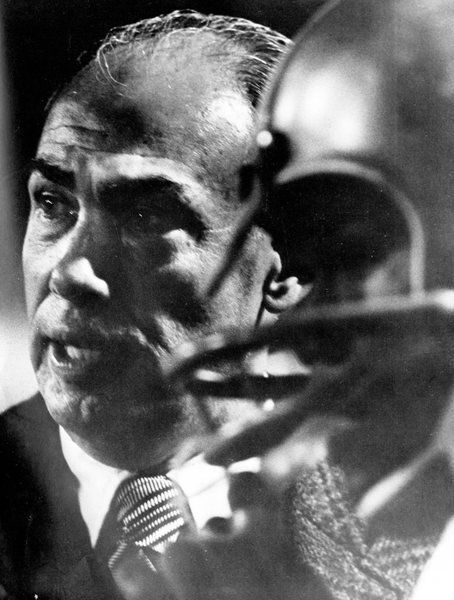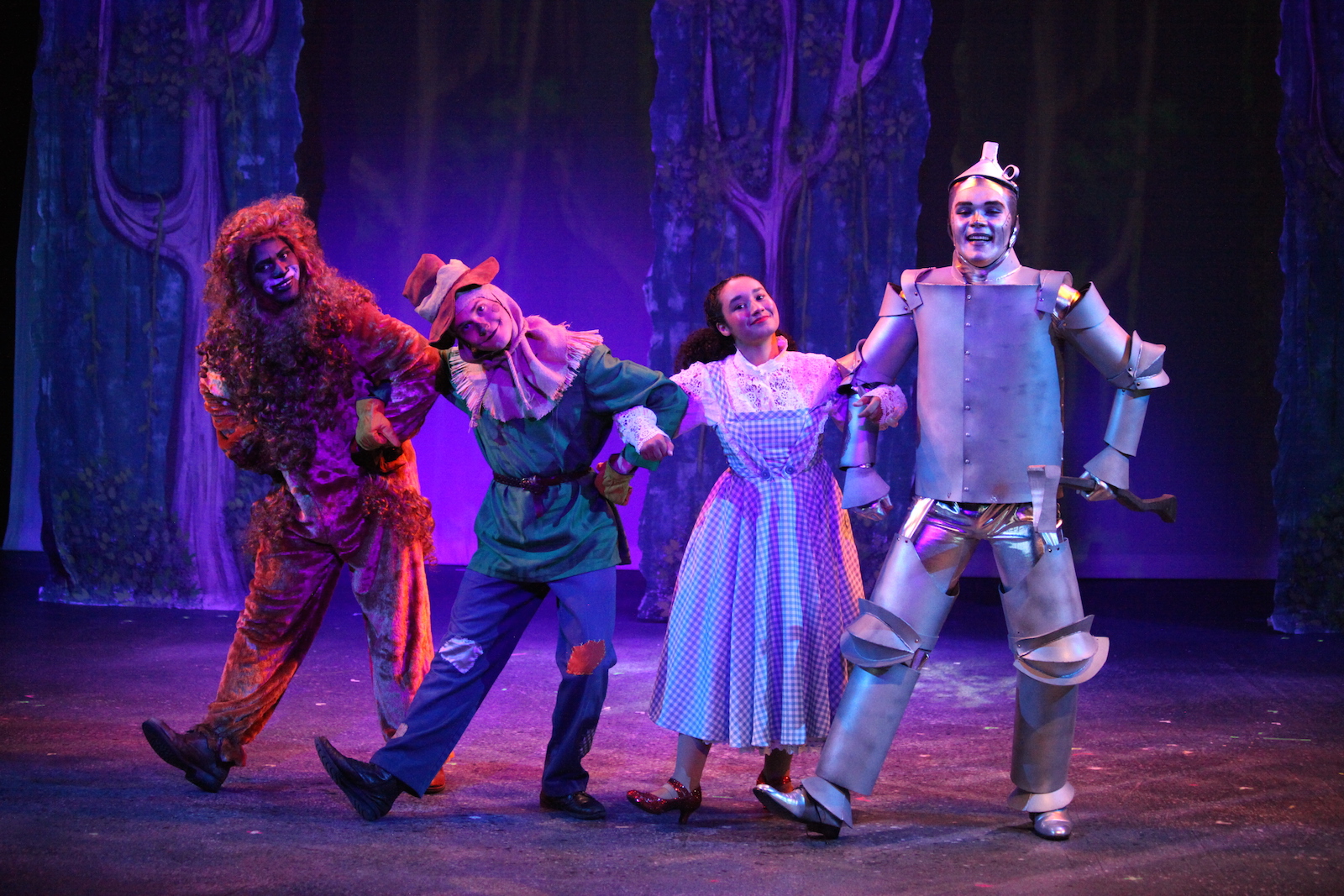Burns column: The king of Titletown
Published 10:30 am Monday, July 11, 2016

- Lowndes County Historical Society & MuseumLegendary Valdosta High coach Wright Bazemore talks to a Wildcat on the sideline during the 1971 season, which ended with the Wildcats' third national championship and the 14th and final state championship for Bazemore who retired after that season.
History sometimes comes in the shape of an old wooden chair.
The first day of August would have been Coach Wright Bazemore’s 100th birthday. As the architect of the winningest high school football program in America, many refer to the former Valdosta Wildcats head coach as the greatest of all-time.
Bazemore turned my hometown into a football empire. In acknowledgement of its historic pigskin acumen, ESPN crowned this city “Titletown USA” in 2008.
How did one individual make Valdosta, Georgia, such a nationally renowned athletic kingdom?
Flashback: It’s Saturday, Dec. 10, 1971. The Wildcats capped off a 13-0 season by obliterating the Avondale Blue Devils 62-12 in the most lopsided championship game in Georgia history. Bazemore coined it “the most perfect game that’s ever been played.” His team was voted national champions over T.C. Williams, the team featured in “Remember The Titans.”
Two days later, Bazemore retired after 28 years on the sidelines.
He finished with a remarkable 268-51-7 record. His .833 winning percentage was made sacred by 14 state and three national championships (1962, 1969 and 1971). The 1988 National Sports Hall of Fame inductee even coached state-winning football and basketball teams in 1947.
When reviewing Bazemore’s success in his self-proclaimed “game of life,” I discovered that the perfect game fell short of his true largest victory.
I visited Jack Rudolph, who was a 30-year mainstay as Wildcats defensive coordinator. When I entered his senior living facility, he eagerly showed me his “Bazemore corner.”
The shrine-like exhibit featured Wildcat memorabilia on Bazemore’s aged office desk. Rudolph suggested I sit in Coach’s chair as we conversed. Bazemore’s blue plaid cushion still adorned the oak seat. Rudolph cherished owning such a significant piece of Bazemore’s everyday life.
This man played linebacker under Georgia Tech legend Bobby Dodd (1956-59) and was a member of the Boston Patriots (1960-65) and Miami Dolphins (1965) at their inceptions.
Yet his most proud memories linked to Wright Bazemore.
“Baze was as good a coach and teacher as I was ever associated with,” Rudolph said. “In learning the game, how to approach kids and get the best out of them, he was as good as they come.”
Jack’s wife of 51 years, Marsha, was a VHS cheerleader. Her friendship with Bazemore got Jack a coaching position.
The couple reminisced about the illustrious coach’s charisma, sense of humor and supremely competitive nature – extending even to shoe-tying competitions.
“He would compete about who was going to get their shoe laces tied the quickest,” Jack said. “You are to win at whatever he asked you to do. That was his attitude.”
The Rudolph’s are friends with Wright’s bubbly wife of 48 years, Bettie. I was privileged to discuss Wright’s life with her.
“Bettie and The Baze” met in 1949 when she taught physical education at VHS. We chatted in their former garage, now decorated with books, souvenirs and paintings dedicated to Wright and their children.
In 1934, Bazemore made “Ripley’s Believe It or Not!” for scoring 10 touchdowns in back-to-back games. He attended Mercer University, which disbanded its football program in 1941. When it was reinstated in 2013, Bettie performed the opening game’s honorary coin toss.
Wright Bazemore was a person of simple pleasures. He enjoyed camping and hunting, though Bettie said he didn’t have much of a green thumb. His first check written each month was silently donated to the church. Even after a stroke in 1989, Bazemore frequented the community he was so passionate about. Throughout his coaching career, he declined college offers in order to stay home.
Bazemore was a Southern gentleman; he didn’t curse, drink or smoke. He led by example. Much was demanded of his athletes, but above all they were expected to be men of character.
Even as adults, protégés of Bazemore wouldn’t so much as glance at a cigarette or beer when around him. Bettie recalls Billy Grant, a smoker who would never do so in Coach’s presence. Grant parlayed Bazemore’s tutelage into becoming Valdosta State University’s baseball coach in 1960. VSU later named its baseball field in Grant’s honor.
“I believe he was just trying to make men out of boys,” Bettie said. “When he told them to run, they’d never ask why. He had their respect. He never realized how big of an impact he had on their lives…to this town. It was a God-given talent. To me, that’s what made him a leader.”
Bazemore served three years as a Navy lieutenant during World War II. He said that looking for Germans on the U.S.S. Breeman was the reason for his quick on-field adjustments and keen perspective, according to Bettie. It also gave him the maturity to handle controversial situations.
During integration, Bazemore supported everyone equally. He endorsed cultural diversity and freedom of choice. Bettie said he considered coaching minorities “nothing” compared to instructing left-handed quarterbacks.
In 1982, VSU President Hugh Bailey sought Bazemore’s assistance in starting a football program. He became an adviser and permitted VSU to use the Wildcats’ stadium.
The Blazers developed into a Division II powerhouse with three national titles. Renamed Bazemore-Hyder Stadium in 1996, VSU and VHS still share that palace.
Bazemore died in 1999, but what he built is indelible.
Joe Wilson, who played and coached under Bazemore, transformed crosstown rival Lowndes into Valdosta-High-lite. The Vikings are five-time champions and ranked top two nationally as recently as 2008.
Wilson also coached upstart Valwood, a local private school which owns five state championships.
Meeting those close to Bazemore emphasized the vitality of his impact. The glow in their eyes spoke louder than their words. He necessitated and ignited greatness through action.
When Bazemore retired as athletic director in 1980, he gave a final speech to Valdosta’s graduating class. His teary-eyed widow shared with me the original, hand-typed copy.
He concluded that life’s different conditions prevent any concrete success formulas. Instead, he offered advice in his three most important aspects: education, real happiness and character.
Just as his vintage 1947 chair in Rudolph’s apartment, Bazemore’s immortalized parting words have endured the test of time.
“Character has been defined as a distinctive trait,” Bazemore said. “One’s personality, moral strength or reputation. Strength of character means power in influence and (being) a helpful factor in molding the character of others. It takes a person with positive traits of character to be a leader. Honesty, cheerfulness, patience, charity, thoughtfulness, kindness and courage are admirable traits of character. When you cash in your chips for this life, the only thing of any value which you can take with you is your character.”
“Character is a victory, not a gift.”
And that was Wright Bazemore’s greatest win of them all.





